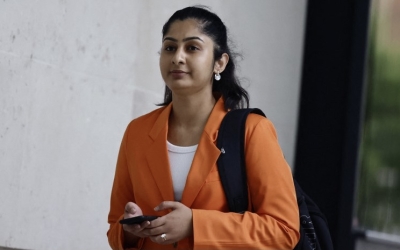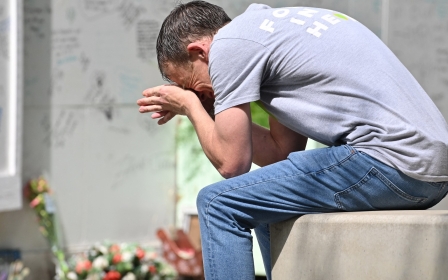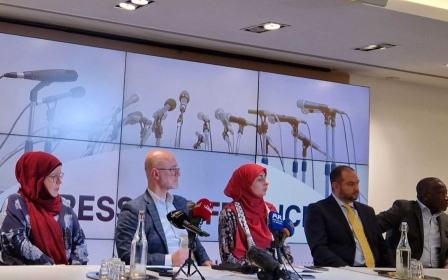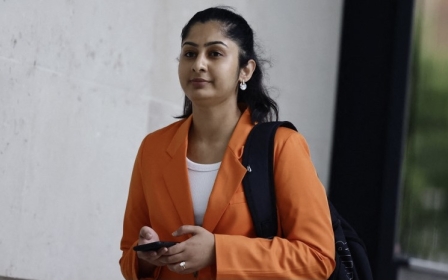Grenfell inquiry: Muslim survivors were 'denied halal food' while being rehoused
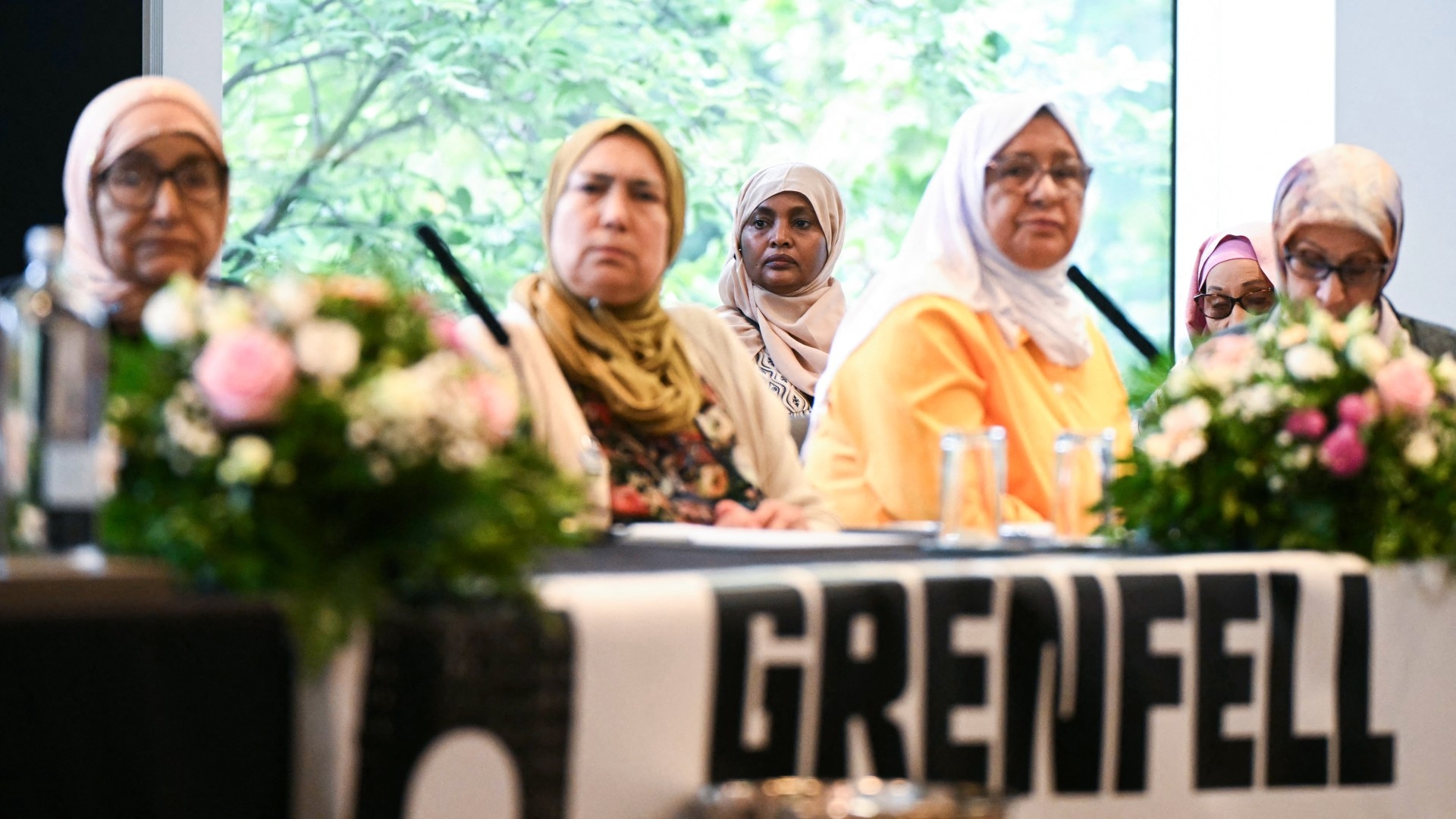
Muslim survivors of the Grenfell Tower fire in West London were denied their right to halal food, including during the month of Ramadan, while being rehoused in hotels in the aftermath of the tragedy.
The failure was revealed among several other findings in the Grenfell Inquiry's long-awaited final report that was published on Wednesday.
The fire on 14 June 2017 burned for 60 hours in the tower block in North Kensington, killing 72 people.
The 1,700-page inquiry, which took six years, found that the blaze occurred as a result of "decades of failure" by the government and by the construction industry to act on the dangers associated with flammable cladding.
Among the conclusions was that the local authority, Kensington and Chelsea Council, should have done more to take care of people from different backgrounds, including Muslims.
New MEE newsletter: Jerusalem Dispatch
Sign up to get the latest insights and analysis on Israel-Palestine, alongside Turkey Unpacked and other MEE newsletters
The report found that halal food was not available at any of the hotels that residents who survived the fire were temporarily rehoused to.
It also found that it was not possible to eat at set times in some of the hotels - a requirement for the survivors who were observing fasting during the month of Ramadan.
Zara Mohammed, the head of the Muslim Council of Britain, told The Independent: "The treatment of minority and faith communities by the council highlights wider structural and systemic issues that must be tackled.
"Grenfell remains a stark reminder and trauma for so many, not just the fire but for the way the most vulnerable in our society are treated. Much must be learned now, and for those who have been waiting for justice, meaningful change is essential."
Several of the victims of the fire were from ethnic minority backgrounds, with links to Afghanistan, Bangladesh, Egypt, Eritrea, Ethiopia, Iran, Lebanon, Morocco, Sudan, Syria and several other countries.
The inquiry found that there had been a lack of support for people with English as their second language.
"Those who obtained information about the support available were the first to receive assistance, while those who did not were left behind," the report said.
"That particularly affected vulnerable people, such as those with mobility problems and those who could not speak English. When official communications were eventually released, they were in English. That included communications sent to those who had been placed in hotels."
The report found that successive Conservative governments received warnings about the dangers of certain cladding materials between 2012 and 2017, but had failed to act.
It also found "deliberate and sustained" manipulation of fire safety testing and data by several companies. In addition, the accommodation plans for survivors were "inconsistent", with some families crammed into one room or left to sleep in cars.
It described the response to the tragedy by the government and local council as "muddled, slow, indecisive and piecemeal".
UK Prime Minister Keir Starmer apologised to the families of victims and survivors during a statement in parliament on behalf of the British state, saying that "it should never have happened", and vowing to ensure that "such a tragedy cannot occur again".
He pledged a "generational shift" in the quality and safety of housing, adding: "In the memory of Grenfell, we will change our country".
The Crown Prosecution Service said on Wednesday that it would likely not decide whether to charge anyone over the fire until at least the end of 2026.
Middle East Eye delivers independent and unrivalled coverage and analysis of the Middle East, North Africa and beyond. To learn more about republishing this content and the associated fees, please fill out this form. More about MEE can be found here.


